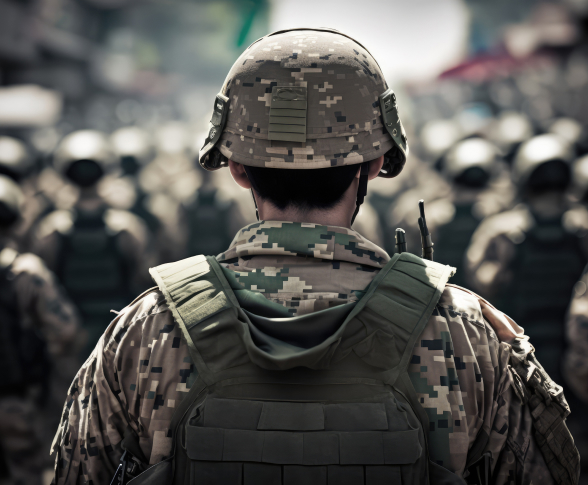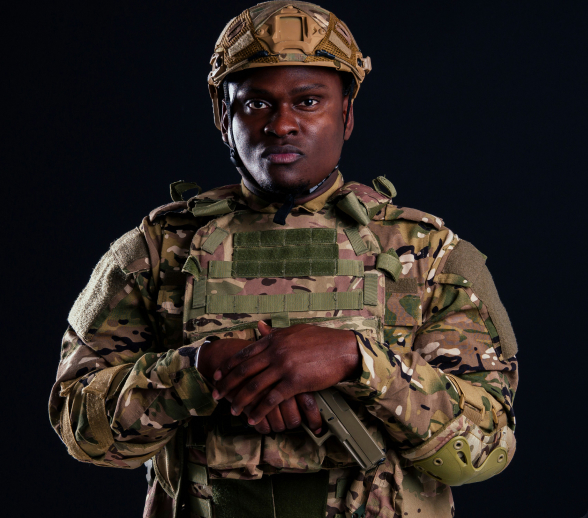NJP and Article 15 Defense Lawyers
NonJudicial Punishment (NJP) Article 15
Non-Judicial Punishment isn't about fairness, it's about command control. Bilecki combats this with expert legal maneuvering, ensuring your story isn't overshadowed by command bias. We navigate NJP's complexities to defend your rights and career.
Non-Judicial Punishment isn't about fairness, it's about command control. Bilecki combats this with expert legal maneuvering, ensuring your story isn't overshadowed by command bias. We navigate NJP's complexities to defend your rights and career.
- 20+ Years of Experience
- 250+ Court Cases Won
NJP Defense Critical Tactics
What is NonJudicial Punishment (NJP) Article 15?
Some call it Article 15, others call it office hours. The Navy calls it Captain’s Mast. Lance Corporals in the Marine Corps simply call it the Ninja Punch. It doesn’t matter, because nonjudicial punishment by any other name is still an NJP. How you fight an NJP can mean the difference between being “staying hired or getting fired.”
It’s really no different than the tactical concept of fire and maneuver for the grunts or air to air combat for our pilots. Fighting an NJP requires your own set of tactics, of which there are many to choose from. Unfortunately, for many service members, an NJP is their first and only run in with the military justice system.
As such, they are like a boot storming a defensive position full of seasoned veterans. Make no mistake about it, the military justice system is built for efficiency. Your career, your accomplishments will be reduced to a binder, while junior government lawyers look forward to making a name off removing you from the service quickly and quietly.
NJP Decisions: Critical Pathways
How To Fight and Win Against NJP?
With each decision you make regarding your NJP, it opens up a series of doors which lead to a host of future decisions. One wrong turn early on and you may find yourself facing some damning odds. So let’s talk about the first decision you have to make.

Accept the NJP or Turn It Down
There's a misconception that accepting NJP means surrendering. Not always true. Unless you're clearly innocent and facing false charges, it's often wiser to accept NJP, Article 15, or Captain's Mast. Rejecting it may lead to a court-martial, with greater risks. On Navy ships, NJP is mandatory, but it doesn't mean you're sidelined.
Plead Guilty or Not Guilty
Accepting NJP doesn't mean admitting guilt but acknowledges it as the forum. Your commander becomes judge and jury. Usually, they push for a guilty plea with lesser consequences, warning of max penalties if you contest. Understanding the potential max punishments is crucial because a lot is at stake.
Company Grade NJP (Imposed by a Captain (O-3) or Lieutenant)
- Restriction: 14 days
- Extra Duty: 14 days
- Forfeiture of Pay: 7 days basic pay
- Reduction in Rank: E-4 or below may be reduced one grade. No reduction for E-5 and above.
Field Grade (Battalion Level) NJP: (Imposed by a Major / Lieutenant Commander or higher):
- Restriction: 60 days, or if combined with extra duty, 45 days
- Extra duty: 45 days
- Forfeiture of pay: half month’s basic pay for up to 2 months
- Reduction in Grade: E-4 or below may be reduced to E-1; E-5 and E-6 may be reduced one pay grade if the officer imposing the punishment has the authority to promote to E-5 and E-6. Reduction for E-7 and above varies depending upon service.
Suspended Punishment
The commanding officer can suspend punishment if the service member avoids further UCMJ violations. Commanders often impose maximum penalties, with some seeking help only after it's too late. The military justice system is not uniformly applied, and outcomes vary based on individual responses to circumstances. Taking responsibility doesn't necessarily mean sacrificing everything; it can be a win-win situation.
Self-Advocacy at NJP: Strategy Guide
Plead Not Guilty to the NJP and Fight
Our recommended approach: Accept NJP, plead not guilty, and fight before your commander, who appreciates control. An assertive military lawyer like Tim Bilecki may not always sway them, so we prepare you to advocate for yourself using trial-like tactics.
First, obtain all evidence and review the charge sheet, enabling our own investigation and potential witness interviews. We package evidence coherently for your non-legal commander’s understanding, providing written materials in advance.
You must speak up, and we’ll prepare you thoroughly. We’ll line up character witnesses. Commanders are often impressed by a compelling defense, but the final decision rests with them. If found guilty, you can appeal higher in your command. Winning, however, is a significant victory for your career, reputation, and family.

Navigating NJP: Risks and Strategies
Special Ops, Turning Down an NJP And Avoid a Court Martial
We call it “Special Ops” because attempting it without experience can end in disaster. Some situations allow you to decline an NJP or Article 15, avoiding court martial. Success requires a strong case and not being a Marine, as they tend to court martial. The Air Force and Army may or may not prefer charges, while the Navy often doesn’t pursue court martial, bluffing when you challenge them.
Prepare for potential administrative actions, like a General Officer Memorandum of Reprimand or an administrative separation board. With the right circumstances, a win is when you decline NJP, face no court martial charges, appear before an administrative separation board, and they find no misconduct and retain you. It’s complex and risky, so don’t attempt it alone. Understand the potential consequences and courses of action thoroughly before declining NJP or Article 15. Seek professional guidance; don’t go it alone.
Tailored Defense Strategies
What Is the Right NJP Tactic For Me?
We’ve offered an array of tactics to consider, but the right set of tactics are the ones that are tailor made for the unique threat you face. Right now, there are a set of decisions that will guide you to the best possible outcome and a set of decisions that will navigate you to the chopping block behind the wood shed. What was right for your buddy who got an Article 15 or taken to Captan’s Mast last year may not be right for you. This is your career, and you must be willing to fight for it with the tactics that work for you. We leverage the sum of our experience in order to guide you to that best possible outcome. Much like combat, NJP is a fight and it is notoriously unkind to the unprepared and 2nd place finisher. We hope that you have found this helpful and if we can be of assistance, please reach out. We’ll shoot you straight, and if you are willing to fight, we’re ready to jump into the fight on your side.

Years of Experience
Court Martial Verdicts
Service Members Represented
Miles Traveled
your path to legal defense
Get in Touch
- tbilecki@bileckilawgroup.com
- 813-669-3500
- Bilecki Law Group, PLLC, 601 S. Harbour Island BLVD, Suite 109 Tampa, FL 33602
